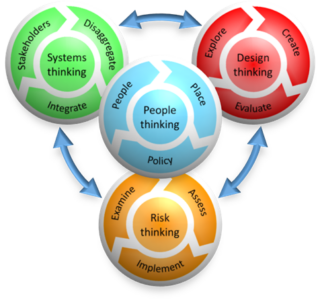On 29 September, there will be a Q visit to the Cambridge engineering department to learn about systems thinking in healthcare. Here’s why I’ll be there.
I’ve worked on process redesign and then cross-organisation change most of my career. I’m a manager and strategist by inclination as well as profession. I’ve found this can mean I struggle to complete a sentence without at least one use of the word ‘system’.
I’m a manager and strategist by inclination as well as profession. I’ve found this can mean I struggle to complete a sentence without at least one use of the word ‘system’.
[Embarrassment / joking] aside, I realise I reach for the term for its elasticity and reminder of the need for an interconnected and holistic approach. It is just helpful to think about things systemically. Yet, the research we did last year for our publication into whole system flow suggests I’m not alone in lacking the time to properly explore what we mean when we talk about systems.
So, last year I jumped at the chance to join a series of workshops convened by the Royal Academy of Engineering, the Royal College of Physicians and the Academy of Medical Sciences to explore the application of systems methods from engineering in healthcare improvement. Some heavyweight organisations, and a technical topic, but it was far from staid or academic: there was a lot of energy and fresh insights in the cross-sector meetings. It was also striking (and perhaps a bit shameful for our sector), that the engineers brought a more rigorous person-centred approach than what I often see in healthcare.
 Through the project a model has been produced that integrated a number of different concepts and methods of system improvement routinely used by engineers and that we identified as having application in quality improvement.
Through the project a model has been produced that integrated a number of different concepts and methods of system improvement routinely used by engineers and that we identified as having application in quality improvement.
I won’t go into more detail here, but at the Q visit there will be the chance to delve deeper.
This model implies a more in depth and rigorous approach that we’re accustomed to expect in the NHS, posing some important challenges to the level of time and resource we generally commit to systems change. I found it also just really useful to be able to step back and make sense of how different systems, improvement and safety ideas could integrate together in a purposeful way.
The Q event offers a great opportunity to explore these ideas with others interested in systems change across the UK.
The Q event offers a great opportunity to explore these ideas with others interested in systems change across the UK. Oh, and did I mention that, as we’re at Cambridge University there will also be the chance to hear from that whirlwind of ideas, Mary Dixon Woods. It’s not often that gets left to the post script!
If you’re a Q member, register your interest soon. There will be a report from the work coming out soon and, as usual, we will share highlights on the past events section of the Q website.